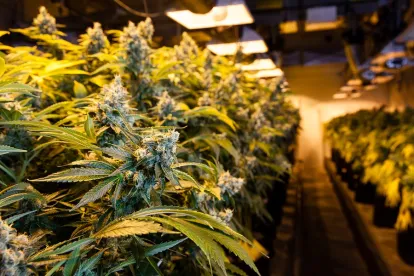On February 27, 2019, Food and Drug Administration Commissioner Dr. Scott Gottlieb provided the strongest signal to date that the FDA would take action to potentially permit low-level CBD foods in the marketplace, which would provide greater certainty to the hemp industry while normalizing CBD in the marketplace.
Appearing before the U.S. House Appropriations Subcommittee[i], Dr. Gottlieb responded to questions from U.S. Rep. Pocan (D-WI) and U.S. Rep. Pingree (D-ME), stating, during the course of his remarks, that (1) he has established a high-level working group at the FDA, and (2) FDA is planning a public hearing in April. Dr. Gottlieb also stated that he would consider returning to Congress if the established FDA process looks like it will take several years to complete. His statements are positive indicators for the hemp industry, which has struggled to thread the needle between state and federal regulation since the passage of the Hemp Farming Act of 2018 with the Farm Bill.
While the 2018 Farm Bill redefined hemp, and its derivatives, as an industrial crop, which was seen by many as a huge step forward for the cannabis industry, Congress did not exempt hemp or its derivatives from other federal statutory oversight, including, most importantly, the oversight of the FDA as the enforcing agency for the Food Drug and Cosmetics Act (FDCA).
The FDA’s continued jurisdiction over products containing certain hemp derivatives that are the subject of drug investigations, of which CBD and THC are the most well-known, was reinforced by a statement issued by Scott Gottlieb on the same day the Bill became law. For business owners who are putting CBD in food and drinks, passage of the Farm Bill did not appreciably change the practical reality of their business; in many states, the language of the pilot program governing the manufacture of hemp products conflicts with the FDA’s classification of CBD as a “Drug,” which cannot be added to food under the FDCA.
Despite the FDA’s position, the industry has yet to see action taken against CBD companies unless they are also (1) making health claims about their products, or (2) have contaminated products or unsafe manufacturing processes.
Since December, a state of play has emerged that generally groups states into four categories:
- Those that have always deferred to the federal government and disallowed CBD in food, outside of a licensed marijuana edibles context, like California.
- Those that do not have hemp programs or have underdeveloped hemp programs, and therefore do not have an avenue to legally sell CBD in the state, like New Hampshire.
- Those states with robust programs that envision CBD product manufacturing, where either the hemp program or another agency entirely, is creating uncertainty in the market by declaring these products impermissible, like Maine.
- Those that continue to permit the sale of food products containing CBD, like Vermont.
This ad hoc state regulatory structure continues to create significant uncertainty for business owners who believe they are allowed to produce and sell CBD containing products only to have an unrelated agency assert authority over these products and their sale.
In New York City, for example, the Department of Health and Human Hygiene, which licenses and inspects restaurants, is committed to enforcing a ban on foods containing CBD by July 1, 2019, after which they will embargo such products if inspectors find them. And beginning in October, they will begin to assess fines for such violations. This is despite New York State Department of Agriculture and Markets clearly stating on its website that CBD is permitted in foods under the hemp pilot program.
Similarly, in Maine, the Department of Health and Human Services announced that foods containing CBD may not be sold in the state, even though Maine has a robust hemp and CBD foods industry. The economic impact of decisions such as Maine’s have been readily apparent. Since then, public outcry has increased and a bill has been introduced to override DHHS’s guidance and explicitly permit CBD food products.
What does this mean for cannabis business owners?
- Developing food products containing CBD continues to be a regulatory challenge requiring careful planning with legal counsel and ongoing review of applicable rules.
- The current situation with CBD is also a preview for all cannabis business owners: following legalization (whenever and however that might be achieved), all cannabis food products, marijuana or hemp derived, will face greater scrutiny by the FDA, which has oversight over both CBD and THC as “Drugs” under the FDCA.
- Regulated marijuana companies should understand their exposure to the FDCA sooner rather than later, and all cannabis companies, CBD and marijuana, should pay particular attention to adopting good manufacturing practices and reviewing their labeling and advertising to ensure no health claims are being made.



 />i
/>i
